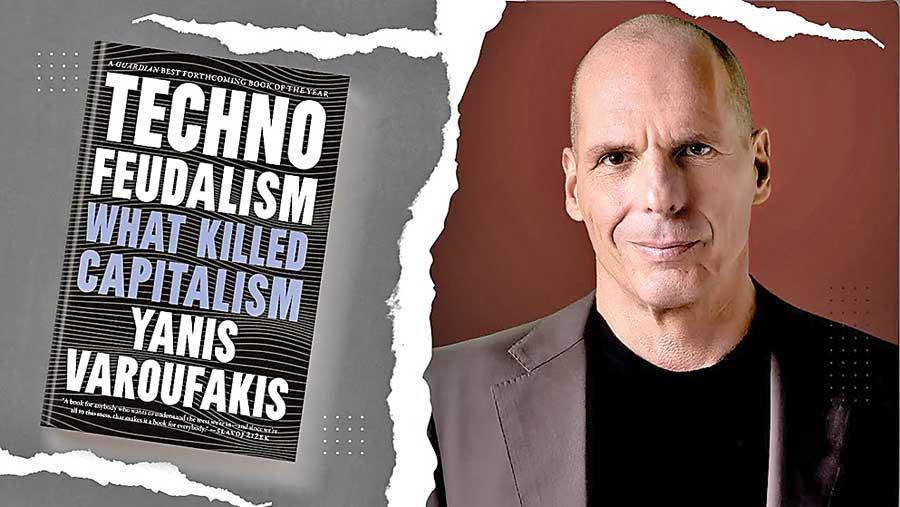
In 2015, Yiannis Varoufakis was appointed Greek Finance Minister by Socialist Prime Minister Alexis Tsipras. Euro  A debt crisis crippled Greece six months later, leaving the once-popular prime minister with a difficult choice between a devastating IMF bailout or leaving the EU and facing economic and diplomatic isolation.
A debt crisis crippled Greece six months later, leaving the once-popular prime minister with a difficult choice between a devastating IMF bailout or leaving the EU and facing economic and diplomatic isolation.
Varoufakis, an academic and Marxist, strongly opposed the IMF approach and insisted on a local solution. Prime Minister Tsipras initially supported it, but had to back down and vote for the IMF because the opposition was overwhelming.
Varoufakis resigned in protest. Unlike Sri Lanka, he did not join the opposition or try to exploit the divide for his own purposes. A former academic who predicted the 2008 banking crisis, he began writing provocative and insightful books examining how and where the global system went wrong. Today he is considered one of the most radical, courageous and innovative thinkers.
He is not an unconditional Marxist. I find this fascinating because - although I am not and never have been a follower of Karl Marx - he is remarkably free of dogma, humble and self-critical, and critical of the icons and gods of communism. “We have made serious mistakes,” he objected to Lenin; Because he said things will get worse before they get better.
There is beauty, humor and realism in his analysis that goes beyond ideology and dogma. He is also a humanitarian, and it is clear that for him people are not just numbers. When he talks about the Palestine and Israel problem, he makes it clear that the origins of the problem go back to the historical European persecution of Jews.
Last year, economists took part in an online discussion about Sri Lanka's debt crisis. There he spoke out strongly against the IMF bailout, and you can see that a lot of what he said today about the IMF makes sense.
In several interviews on YouTube, especially with Arun Bastani from Novara Media, he talks about his new book Techno-Feudalism - The End of Capitalism.
In his book Technical Feudalism, Varoufakis puts forward an interesting hypothesis: rural feudalism dominated Europe and much of the world until the 19th century, when the Industrial Revolution limited the power of landowners and replaced it with new industries and entrepreneurship. Business class is back, but in a new look. It is digital and two examples Varoufakis gives will surprise many: Amazon.com in the US and Alibaba in China.
Both companies are huge, but not Varoufakis's. They don't produce anything. Instead, they provide a platform for others to sell their products. They were called tenants, a term coined by economist David Ricardo in 1809 to describe feudal landowners. They rented out the land to make huge profits but produced nothing. Amazon earns 40% when a product is sold on the platform. This is similar to the feudal pension of the 18th century.
David Ricardo warns: During the Napoleonic Wars, when the price of English corn rose, all imports stopped and the profits did not reach producers. Some of these were eliminated by landlords charging producers high rents. Since the producers did not invest these profits in production (the tenants slept on them), there would be high inflation, he warned.
The world is experiencing not only war, but also climate change, healthcare, online disinformation and rising poverty rates, and we need open and non-canonical thinking more than ever.
The same thing is happening today, warns Varoufakis: a new feudal technology class he calls cloud owners is squeezing profits and thereby reducing overall demand. Their “cloud capital” is the same as that of the feudal tenants in 1809. To meet consumer demand, central banks begin printing money (sound familiar?), which increases inflation.
Of course, central banks cannot do this alone. They need political approval. After World War II, Clement Attlee's British government passed laws regulating bankers. But it was repealed by Bill Clinton in the US and Tony Blair in the UK, allowing central banks everywhere to print trillions of banknotes, leading to today's hyperinflation and social unrest.
Varoufakis said that when the European Union was founded, a condition was imposed on all member states that governments could not print their national currency by destroying their printing presses. Germany, for example, said it doubted it; But Greece did it. If Greece accidentally defaults during the crisis and decides to leave the EU, the country will not be able to print drachmas domestically while the printing presses are closed.
But the euro could not challenge the US dollar. According to Varoufakis, the reason is that large European industrialists prefer to conduct their banking transactions in US dollars. While the US dollar's market position remains unshakable, the European economy is weakening. Only China will dare to challenge this hegemony.
According to him, today's world is controlled by algorithms. All technology companies in the US, China and other countries use algorithms to create demand, large or small, and that's why Tesla founder Elon Musk really wants to use Twitter: he now has a huge database of Twitter likes from users. , dislikes, wishes and dreams. And wishes and dreams.
These algorithms are also designed to maximize anger. The result is more anger and bad behavior (mentioned by David Graybills in Varoufakis' novel). As sentiment rises, more money is withdrawn from the income stream and the new techno-feudal class converts maximum economic power into cloud rents.
Varoufakis points out that this category consists mainly of Americans and Chinese. In Europe, the Cloud Techno category does not exist and is not included. Neither Volkswagen nor Renault have cloud capital. The American ruling class said it had some time ago made an agreement with the Chinese Communist Party to move industry to China and conquer the world through Silicon Valley. But things didn't go as planned. China is a leading contender for feudal tech money in cloud computing. Varoufakis said the new Cold War had nothing to do with Taiwan or nuclear weapons. We talk about algorithms.
There is much more to Varoufakis, and I would like to offer readers even more thought-provoking arguments, which I will present in future columns. The world is experiencing not only war, but also climate change, healthcare, online misinformation and rising poverty rates, and we need clear and non-dogmatic thinking more than ever.


Post a Comment